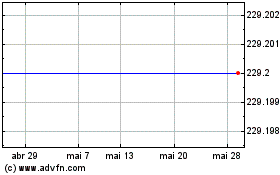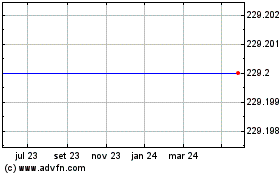Roche presents new data at CTAD, demonstrating its growing momentum
in diagnostics for Alzheimer’s disease
- New data highlight the
potential of the Roche Elecsys® Amyloid Plasma Panel and Elecsys
ptau181 for ruling out Alzheimer’s disease related amyloid
pathology with very good accuracy.
- In the largest worldwide
clinical trial of its kind, the blood-based test showed very good
accuracy in ruling out Alzheimer's pathology in those being
investigated for the disease, potentially avoiding the need for
further invasive and unnecessary tests.
- Results further demonstrate
Roche’s commitment to bringing diagnostic clarity for Alzheimer’s
disease to people at an early stage of cognitive
decline.
Basel, 31 October 2024 - Roche (SIX: RO, ROG; OTCQX: RHHBY)
announced today new late-breaking data on its Elecsys Amyloid
Plasma Panel (combination of pTau181 and ApoE4), for Alzheimer’s
disease, at the 17th Clinical Trials in Alzheimer’s
Disease congress (CTAD) in Madrid, Spain. Results show that the
test, currently in development, could accurately rule out amyloid
pathology – a hallmark of Alzheimer’s disease – in a broad
population with varying cognitive impairment, as seen in routine
clinical practice.1 This could allow clinicians to rule
out Alzheimer’s disease as a possible cause of cognitive symptoms
with a simple blood test, offering certainty and reassurance.
In the prospective, multicentre study, which included 492
patients across the US and Europe, the Roche Elecsys Amyloid Plasma
Panel was able to rule out Alzheimer’s disease with a high negative
predictive value (NPV) of 96.2% based on a 23.4% prevalence of
amyloid positivity according to positron emission tomography (PET)
scans, with 91.0% sensitivity and 69.8% specificity. The
performance of the test was only minimally impacted by the
patients’ age, sex, body mass index or impaired kidney function.
Roche’s pTau181 biomarker performed similarly as a standalone
assay.
“The data from this large-scale study in cognitively impaired
individuals suggests that a fast and simple blood test could
reliably rule out amyloid pathology, offering much-needed
reassurance to patients and their families,” commented Matt Sause,
CEO of Roche Diagnostics. “Alzheimer’s disease is one of the most
challenging health issues of our time, and its impact on society is
growing as the world’s population ages. For many people, getting a
clear and timely diagnosis remains challenging. This test could
help patients to receive the right care at the earliest
opportunity.”
The Elecsys Amyloid Plasma Panel, which received FDA
Breakthrough Device Designation in July 2023, is a minimally
invasive blood test that measures phosphorylated Tau (pTau) 181
protein and apolipoprotein (APOE) E4 in plasma. This is the first
industry trial of its kind (globally prospectively collected
diagnostic registrational clinical trial) to investigate the test’s
clinical performance in a patient population that reflects as
closely as possible the patients who could benefit from the test.
It involved a subset of patients from a wider trial looking at a
highly diverse set of patients with broad inclusion criteria, to
ensure the test could be used effectively across different
geographies and ethnicities. Further potential uses for the test
are being explored with the rich patient population.
In addition to data on the Elecsys Amyloid Plasma Panel and
pTau181, Roche also presented data for its Elecsys pTau 217 assay
which is currently in development and also received FDA
Breakthrough Device Designation earlier this year. The results from
this latest study demonstrate high accuracy of amyloid pathology
detection in comparison with another available pTau 217 test.
Today, barriers to early and accurate diagnosis of Alzheimer’s
disease exist across the globe, with up to 75% of people living
with the symptoms of Alzheimer’s but without a diagnosis. Those who
have received a diagnosis waited, on average, 2.8 years after
symptom onset.2 To address the growing strain that
Alzheimer’s disease is putting on healthcare systems, it will be
essential to make a person’s journey to diagnosis faster and more
accessible. This will ultimately enable access to appropriate new
therapies as they become available. With an unmatched base of
installed solutions worldwide, Roche is uniquely placed to rapidly
scale testing once approved, ensuring that patients can benefit
from the test as soon as it has been cleared for use.
Roche is committed to using its diagnostic and pharmaceutical
capabilities in an effort to better detect and treat Alzheimer’s
disease as early as possible, and working toward preventing the
disease altogether. To achieve this, the company is developing and
delivering solutions to more effectively detect, diagnose, and
monitor the disease and progressing research into investigational
medicines for different targets, types, and stages of the disease.
This includes trontinemab, a novel Brainshuttle™ Aβ antibody that
is currently in development and is specifically engineered for
enhanced access to the brain to enable rapid reduction of amyloid
in people with Alzheimer’s disease. Further data on progress in the
Alzheimer’s disease pipeline will be shared with investors. Click
here to access the investor presentation.
About the Elecsys Amyloid Plasma Panel
This product is currently under development and not
commercially available. The below information reflects Roche’s
plans for these products if they are approved by regulatory bodies
for clinical use in the future:
The Elecsys Amyloid Plasma Panel measures phosphorylated Tau
(pTau) 181 protein assay and apolipoprotein (APOE) E4 assay in
human blood plasma. Elevations in pTau181 occur in the early stages
of Alzheimer’s disease, while the presence of APOE4 constitutes the
most common genetic risk factor for Alzheimer’s disease. The result
is intended for consideration in conjunction with other clinical
information to advise for further confirmatory testing with amyloid
positron emission tomography (PET) or cerebrospinal fluid (CSF)
testing. Patients testing negative with the Elecsys Amyloid Plasma
Panel are unlikely to be amyloid positive and should be
investigated for other causes of cognitive decline.
About Elecsys pTau217
This product is currently under development and not
commercially available. The below information reflects Roche’s
plans for these products if they are approved by regulatory bodies
for clinical use in the future:
Elecsys Phospho-Tau (217P) is intended to be an in-vitro
diagnostic immunoassay for the quantitative determination of the
protein Phospho-Tau (217P) (pTau217) in human plasma from
individuals aged 60 years and older. The test is intended for use
as an aid in identifying amyloid pathology, a pathological feature
of Alzheimer’s disease.
- A positive Elecsys pTau217 result
indicates a high likelihood of having a positive amyloid PET/CSF
result.
- A negative Elecsys pTau217 result
indicates a high likelihood of having a negative amyloid PET/ CSF
result.
- An indeterminate pTau217 result
indicates uncertainty on the amyloid PET/CSF result. The pTau217
result should be used in the diagnostic pathway in conjunction with
other clinical information.
About Roche in Alzheimer’s disease
With more than two decades of scientific research in Alzheimer’s
disease, Roche is working towards a day when we can detect and
treat the disease early, in order to stop or even prevent its
progression to preserve what makes people who they are. Today, the
company’s Alzheimer’s disease portfolio spans investigational
medicines for different targets, types and stages of the disease,
including trontinemab. On the diagnostics side, it also includes
approved and investigational tools, including digital and
blood-based tests and CSF assays, aiming to more effectively
detect, diagnose and monitor the disease. Yet the global challenges
of Alzheimer’s disease go well beyond the capabilities of science,
and making a meaningful impact requires collaboration both within
the Alzheimer’s community and outside of healthcare. Roche will
continue to work together with numerous partners with the hope to
transform millions of lives.
About Roche
Founded in 1896 in Basel, Switzerland, as one of the first
industrial manufacturers of branded medicines, Roche has grown into
the world’s largest biotechnology company and the global leader in
in-vitro diagnostics. The company pursues scientific excellence to
discover and develop medicines and diagnostics for improving and
saving the lives of people around the world. We are a pioneer in
personalised healthcare and want to further transform how
healthcare is delivered to have an even greater impact. To provide
the best care for each person we partner with many stakeholders and
combine our strengths in Diagnostics and Pharma with data insights
from the clinical practice.
For over 125 years, sustainability has been an integral part of
Roche’s business. As a science-driven company, our greatest
contribution to society is developing innovative medicines and
diagnostics that help people live healthier lives. Roche is
committed to the Science Based Targets initiative and the
Sustainable Markets Initiative to achieve net zero by 2045.
Genentech, in the United States, is a wholly owned member of the
Roche Group. Roche is the majority shareholder in Chugai
Pharmaceutical, Japan. For more information, please visit
www.roche.com.
All trademarks used or mentioned in this release are protected
by law.
References
[1] Kirste I, et al, Revamping Alzheimer's Disease Diagnostics:
Evaluating Future IVD Plasma p-Tau 181 and ApoE4 Immunoassays for
Amyloid Detection in a Multi-Center Study Reflective of Routine
Clinical Practice, presented at CTAD, October 2024.
[2] Life Expectancy Following Diagnosis Of Alzheimer’s Disease
Depends On Age At Diagnosis, Johns Hopkins Bloomberg School of
Public Health, November 18, 2002,
https://publichealth.jhu.edu/2002/alzheimer-age
Roche Global Media Relations
Phone: +41 61 688 8888 / e-mail: media.relations@roche.com
Hans Trees,
PhD
Phone: +41 79 407 72 58 |
Sileia
Urech
Phone: +41 79 935 81 48
|
Nathalie
Altermatt
Phone: +41 79 771 05 25 |
Lorena
Corfas
Phone: +41 79 568 24 95
|
Simon
Goldsborough
Phone: +44 797 32 72 915 |
Karsten
Kleine
Phone: +41 79 461 86 83
|
Nina
Mählitz
Phone: +41 79 327 54 74 |
Kirti
Pandey
Phone: +49 172 6367262
|
Yvette
Petillon
Phone: +41 79 961 92 50 |
Dr Rebekka
Schnell
Phone: +41 79 205 27 03 |
Roche Investor Relations
Dr Bruno
Eschli
Phone: +41 61 68-75284
e-mail: bruno.eschli@roche.com |
Dr Sabine
Borngräber
Phone: +41 61 68-88027
e-mail: sabine.borngraeber@roche.com
|
Dr Birgit
Masjost
Phone: +41 61 68-84814
e-mail: birgit.masjost@roche.com |
|
Investor Relations North America
Loren
Kalm
Phone: +1 650 225 3217
e-mail: kalm.loren@gene.com
|
|
- 31102024_MR_CTAD_DiaAlzheimer_en


Roche (LSE:0QQ6)
Gráfico Histórico do Ativo
De Dez 2024 até Jan 2025

Roche (LSE:0QQ6)
Gráfico Histórico do Ativo
De Jan 2024 até Jan 2025
